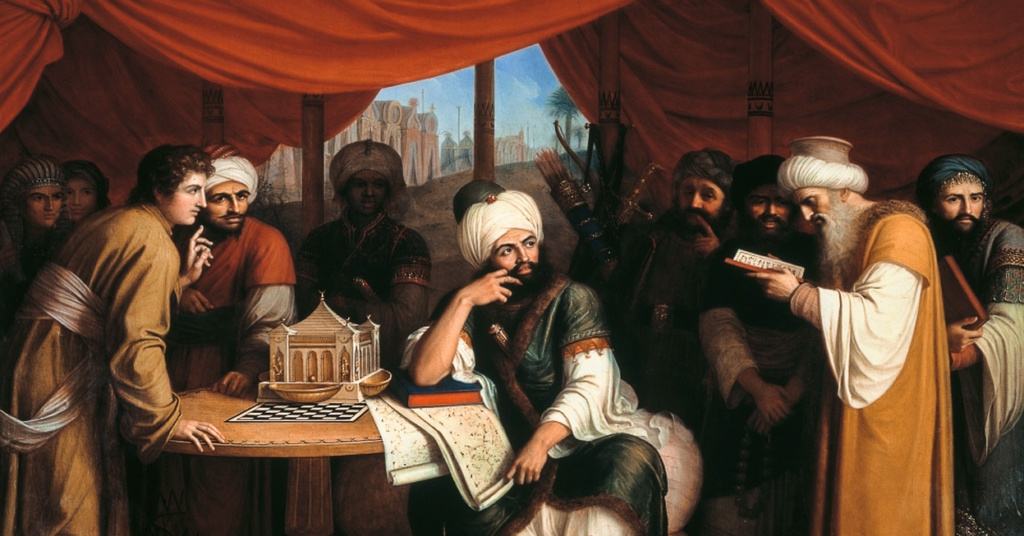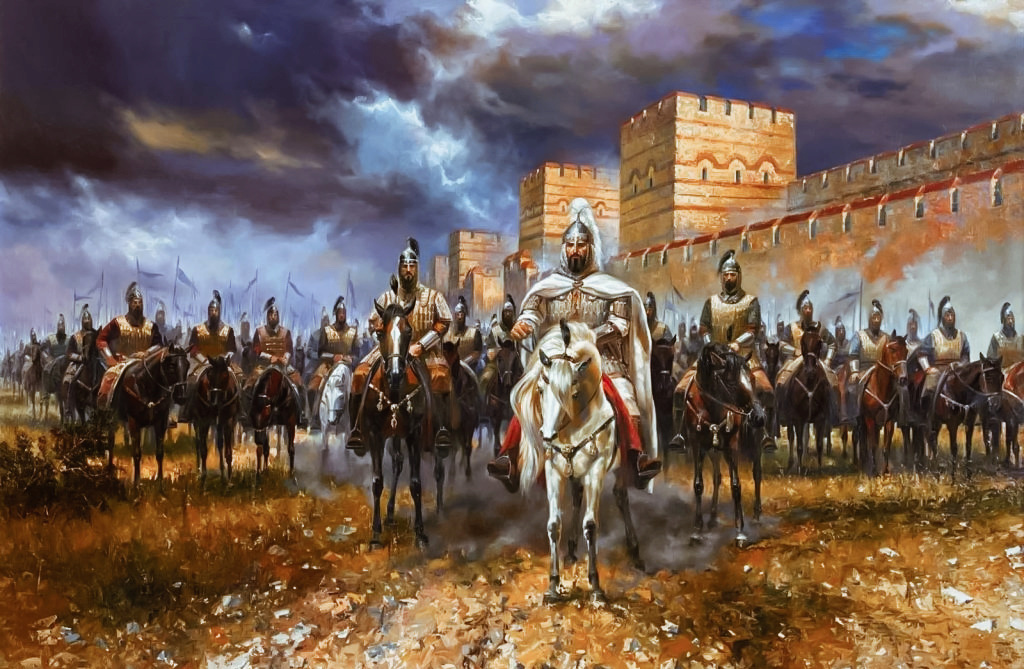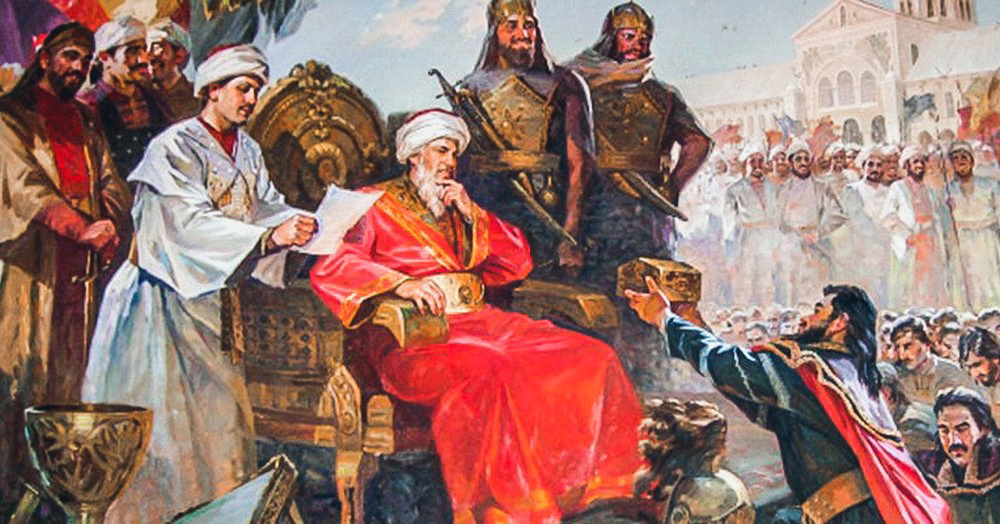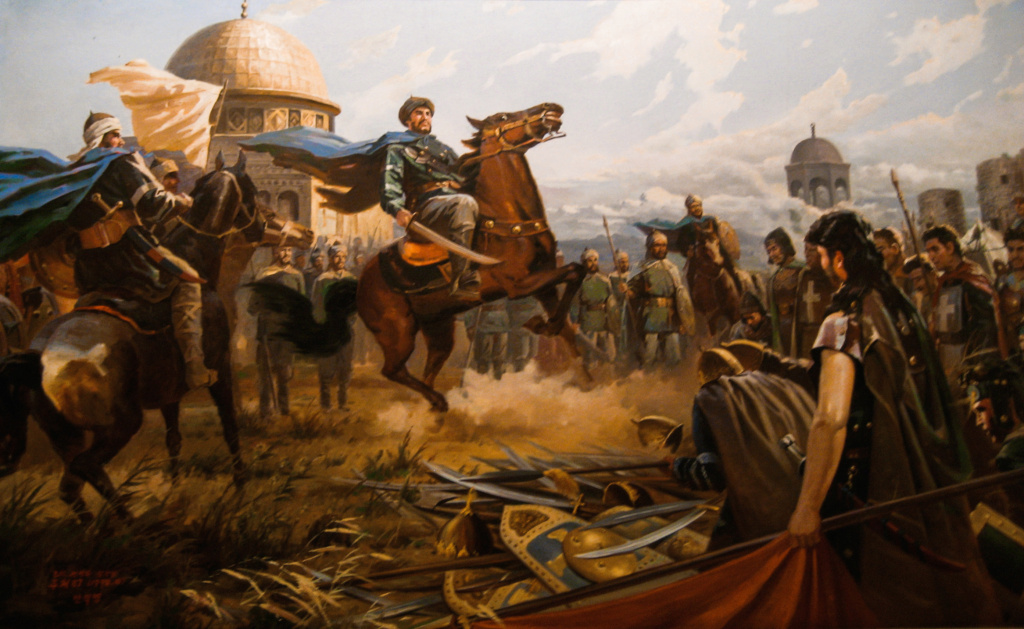Populism: When the “loyal” Arabs felt the racial discrimination that the Qur’an and the Messenger
!forbade

The concept of populism appeared for the first time in Al-Jahiz’s book “The Statement and Explanation.” Grammarians usually do not refer to the plural (shuub), and as long as its singular (shu’ub) does not fulfill the meaning, because the comparison here is between Arabs and other peoples, an exception was made.
Muhammad emerged with Islam as a religion, and he was, according to the Qur’an, God’s envoy to all people… “The immigrants and the supporters” responded to him in the beginning, and he had to proceed with his call to the rest of the Arabs, and then later to the non-Arabs.
However, there are non-Arabs who believed in his message from the beginning. They were a few individuals, the most famous of them: Salman Al-Farsi, Bilal Al-Habashi, Suhaib Al-Roumi.
And because this message of his was universal, addressed to all people, it emphasized from the beginning that there is no difference between those who believe in it, and that the Arabs have no credit for it over people just because it appeared in them.
It came in the Qur’an: “O people, indeed We created you from a male and a female, and made you into nations and tribes so that you may know one another .
Then, in the “Farewell Pilgrimage,” the Prophet affirmed: “Oh people, God has taken away from you the pride of ignorance and its boasting of the fathers. An Arab has no pride over a non-Arab except in piety.
Omar did not give the Prophet time to witness cohorts of non-Arabs entering Islam, forcibly or voluntarily, during what was called the “conquests.”
But the “ conquests ” that actually began with Umar ibn al-Khattab were a turning point in the history of Islam. Because more foreigners will become Muslims than ever before.

… And those, they will bear the name “Al-Mawali”!
The first Muslims, and their faith after a young boy, surrounded the loyalists with care and treated them well, and did not make them feel defeated.
In this case, they entered Arab life, so they knew the language of the Arabs and became accustomed to their customs, as well as composed poetry, and even belonged to their tribes, so he is called Tamimi, and the other Al-Amiri, and so on, does not distinguish from the son of the tribe unless he introduces his name as “Mawla.”
But not all Arab Muslims were like that. There were those who did not abide by the rights imposed by Islam on the loyalists, but rather looked at them with contempt and contempt, embodied in the dualism of the victor and the vanquished (the owner and the owned).
The Egyptian thinker Ahmed Amin says in his book “The Sacrifice of Islam”: “Many of them went to extremes in this, and they felt that the blood that flows in their veins is excellent blood, not of the same kind as the blood of Persians, Romans and their likes! And this feeling of sovereignty and greatness possessed them, so they looked at other nations as the master of the black… and the Umayyad rule was based on this view.
What happened was that some of the loyalists, as they hoped that this situation would be anomalous, soon disappointed their hopes with the rise of the Umayyads to power.
The Iraqi researcher Ahmed Faraj Allah says in his book on “The heresy and the populism,” that with the exception of some of them, such as Othman bin Affan , the Umayyads did not accept Islam except when Islam became strong and they failed to repel it, and after they saw that their abstention from it would prevent them from their ambition for power.
The reality is that the Umayyads, the same researcher adds, were of a transcendent tribal tendency, did not deal well with the Muslim Arabs themselves, and felt superior and superior to them, so how about the non-Arab loyalists whom the “conquests” brought by force!
Although the loyalists until that time had not expressed any position in this regard, and the majority of them were Persians, their conditions had begun to deteriorate.

The Sudanese researcher Fouad Sheikh El-Din Atta confirms, in his article “People’s… The Discourse of Rejection in Arab and Islamic Culture,” that the causes that produced populism are many, and this is what we can easily see in a number of Akhbar narrations.
It was stated in the “unique contract” of Ibn Abd Rabbo Al-Andalusi that Muawiyah bin Abi Sufyan resolved at some point to kill the loyal side, and leave the second part to establish the market and build the road. Only Al-Ahnaf bin Qais and Samra bin Jundub dissuaded him from that and advised him not to sign it.
And in “Al-Aghani” by Abu Al-Faraj Al-Isfahani: “A Bedouin entered the Mujza’ah of Ibn Thawr Al-Sudusi and Bashar [3] with him, wearing the poet’s uniform. The Bedouin said: Who is the man? They said: A man is a poet, so he said: Is my money or an Arab? He said: Rather, he is a master. The Bedouin said: What is for the master and poetry?
We also read in “Uyoun al-Akhbar” by Ibn Qutayba al-Dinuri: “Nafie bin Jubair bin Mutim presented a man from the people of the slaves who prayed with him, and they told him about that, so he said: I only wanted to humble myself to God by praying behind him.”
The matter of contempt for the master reached some Arabs, until it was said that only three can interrupt the prayer: a donkey, a dog, or a sire!
But when it happened between the “al-Mawali”, the poet, the writer, and the thinker, these people began to feel humiliated … and after the debtor silenced the mouths of their fathers, so that they would not dare to complain and complain, the new generation of al-Mawali had another opinion.
At that time, the voices of the loyalists were raised, calling for equality between the Arabs and the rest of the Muslim peoples... From this standpoint, “populism” emerged, and in its first stage it was also known as the “settlement movement”; That is, equality between Arabs and others.
By the way, the concept of populism appeared for the first time in Al-Jahiz’s book “Al-Bayan wa-l-Tabyeen”, and it was customary for grammarians not to be attributed to the plural (shuub), and as long as its singular (shu’ub) does not fulfill the meaning because the comparison here is between Arabs and other peoples, an exception was made.

And the populist, according to Ibn Manzoor (Lisan al-Arab), is the one who belittles the status of the Arabs and does not see them as superior to others. The same meaning can be found in other dictionaries.
So how, after all of the above, is populism described as a movement that belittles the Arabs?
Written by: Karim Al-Hani
Source : websites

